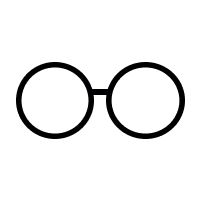Making a museum together: the power of co-creation
The International Council of Museums (ICOM) is a worldwide network of museums, of which M is also a member. Within ICOM, there are several international committees. The oldest and largest is CECA (Committee for Educational and Cultural Action) and deals with public mediation. CECA holds a conference every year, each time in a different country. With a year's delay due to Corona, the honour falls to Belgium and M in 2021.
The theme of the conference is therefore co-creation inside and outside the museum walls. This way of working has become very popular in recent years. In the past, a museum was often an ivory tower: a place where specialists filled rooms and designed exhibitions that the public could come and see. Co-creation breaks with this one-way traffic. The idea is that museum staff no longer decide on an exhibition on their own, but involve others: colleagues from other departments, but also and especially the general public.
Model M
It is no coincidence that M is organising a conference on co-creation and public participation: we have already acquired a great deal of experience in this field. In recent years we have worked closely with Mater Dei primary school, UZ Leuven children's hospital and Leuven prison auxiliary. M recently introduced 'The Ten', a new collection presentation curated by ten visitors. Previously, together with our audience, we made the collection presentations 'Boundless hospitality' (compiled by people with a migrant background) and 'Madness' (students). That way, we not only appeal to a new audience, we also encourage their supporters to come to M.
All these examples will be discussed at the conference - but of course it is not just about M. Lectures and workshops will present inspiring cases from the Netherlands and abroad. Such as 'Museum at Home', a project of the Ixelles Museum, closed for restoration until 2024. In the meantime, it invites local residents to choose a work from the collection and exhibit it at home for a weekend. In a Japanese museum they involve the Ainoe, the original population of the island of Hokkaido, in their work. A museum in Singapore lets residents of a residential care home participate in a creative and safe way in an exhibition of contemporary art.
An increasing number of museums also engage in co-creation within the museum walls. This is called 'edu-curation', a contraction of 'education' and 'curation'. The term was coined by Pat Villeneuve, one of the two keynote speakers at the conference. It comes down to departments of the same museum working together in a far-reaching way. In the past, exhibitions were mainly put together by the collection managers; nowadays, colleagues from the communication department, for example, are involved from the start. This reinforces the museum's effect, and at the same time public participation.
Welcome to the Temple
Co-creation, participation, 'edu-curation': these are big words, but what can they mean for daily museum practice? The conference attempts to answer that question too. The most important added value is obvious: co-creation lowers the threshold to the museum. For many people, a museum is still a bit of an art temple: a place they will not spontaneously enter because they think it is not meant for them. Co-creation can help to correct this. At M, for example, we noticed this during our collaboration with Mater Dei primary school: after a while, the children started talking about "our museum". You cannot achieve that by inviting a class of people to a guided tour once a year.
Co-creation thus goes a great leap further than the classic public cooperation, but the two are not mutually exclusive. In 2010, Nina Simon, the second keynote speaker at the conference, wrote the influential book 'The Participatory Museum' on this and other subjects. She uses the image of a ladder with many rungs. The highest rung is an intensively supervised public project, such as 'De Tien' in M. This includes initiatives to involve the public in workshops or sounding board groups. On the lowest rung is the 'regular' museum visit - because that too, of course, is a form of public participation. It is precisely this diversity that is valuable: after all, not every visitor feels the need to take part in an intensive participation process.
Hybride
The ICOM CECA conference is one of the hybrid kind: it takes place partly in the museum and partly online. The first two days are digital, with lectures simultaneously translated into English, French and Spanish - the three official ICOM languages. Everyone can participate in the digital part for free, all you have to do is to register. There is also one day in M and one in Brussels, with working visits to various museums. Finally, on Saturday there is an optional trip to Antwerp, Ghent, Liege or Mons, where they have also developed a programme on co-creation in museums.
On the conference day in M, there is room for so-called poster presentations: the speakers do not give a lecture, but put the most important key words of their presentation on a poster. All posters are hung up in one room, where the participants can look at them and have a chat with the speakers and with each other.
Finally, I would like to mention that M is organising the conference with various partners: apart from ICOM CECA and ICOM Belgium, these are the KU Leuven, the heritage organisation Faro, and Bamm!, an organisation for art education that, among other things, sets up participation trajectories in museums. The partners have helped put together the programme and are organising workshops, among other things. So the conference itself is also a fine example of co-creation.
ICOM CECA-conferentie: 25.10 - 30.10.2021.




